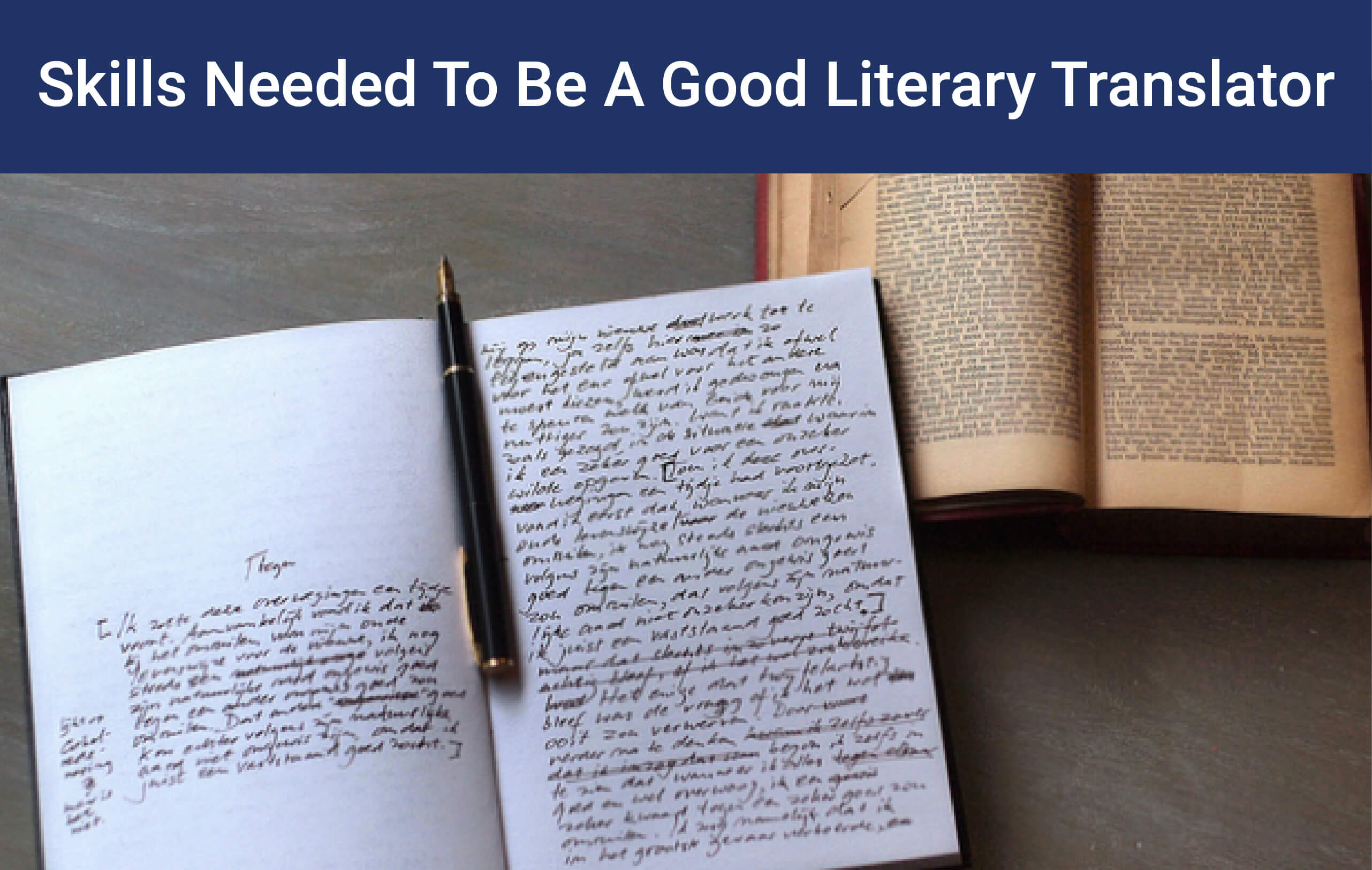





With the world becoming increasingly globalized, there is a growing demand and recognition for translators and translation services. Strong and effective communication is now key to achieving several dynamic personal and professional goals.
Translators are professionals who use a plethora of literary skills to convert words, sentences, and conversations from one language to another. Translators are employed in several fields across the global economy in today's highly interconnected world.
Accurate and carefully translated language plays a key role in crossing the communication barrier that may exist between two parties. As a result, translators help build trust, reliability, dependability, and understanding with their wide range of skills and expertise.
Of the many different kinds of translation services provided, literary translation has proven the most challenging. Literary translation is the translation of dramatic and creative poetry & prose from one language into another. The goal is to translate literature to reach a wider audience.
Have you ever wondered about the essential skills that a good literary translator needs to possess? If yes, keep reading to discover more!
Literary translation is a significant contributor to helping readers shape their understanding of the world around them. Literary translators work to share experiences and knowledge across cultural boundaries, bridging the divide between different cultures with literature.
Here are the top 7 skills a good literary translator needs:
For literary translators, cultural knowledge has a deep connection with language knowledge. Therefore, a thorough awareness and understanding of specific cultures, traditions, rites, etc. can ensure that translations bridge the communication gap between people from different backgrounds.
For example - slang, references, and idioms have different meanings depending on how they are used in a specific context. With excellent cultural knowledge, a literary translator can work to ensure that meaning is communicated as effectively and originally as possible.
To be a literary translator, aspirants must have excellent writing abilities. A translator with average writing skills will not be able to do a good job of effectively translating content.
As a literary translator, you need to have a way with words and an ability to write with flair. Literary translators should also be comfortable and confident working with different kinds of text styles - including formal, poetic, informal content.
A literary translator needs to be almost 100% fluent in their source & target languages and should be able to understand both without any issues. This implies that translation requires never-ending study, given that languages continue to involve and grow with culture and civilization.
Literary translators often spend a significant amount of time living in a foreign country and learning the language. Interacting with natives to improve speaking and listening skills is an added goal that needs to be accomplished by a literary translator.
Literary translators also consume media in both the source and the target language, allowing them to understand different kinds of material.
A key aspect of a literary translator’s job description is consistently making good translation decisions concerning content. This includes decisions on research, vocabulary, styles, and content structures - among other aspects of literature.
Over time and with experience, good literary translators will be able to make sound translation-related decisions almost instinctively. The key lies in investing time and effort into translation practice with regular and consistent feedback.
A rule of thumb in literary translation is as follows - to translate effectively, it is key to be a voracious reader. This includes reading material in both the source and the target language .
Source texts are read for several reasons, including expanding vocabulary and understanding styles and genres. Being continually updated on published works in source languages also provides a sense of the kind of material being translated.
Reading texts in the target language, on the other hand, helps literary translators study different methods of translation that can apply to their services.
For literary translators, it is crucial to have remarkable research abilities. This skill can play a significant role in ensuring that translators are well-versed in the kind of content they are converting.
Research abilities include being up to date on the latest background information, jargon, vocabulary, wordings, and meanings in the industry. One of the best ways to refine research skills is by creating a network of professionals who have expertise in the field and constantly learning through interaction and conversation. Several translator forums are available that are designed to help literary translators connect with experts
Lastly, a good literary translator needs to have an excellent command of commonly used programs and software such as common Word processing software.
In such cases, many professionals seek to continually upgrade their skills with online courses, tutorials, and training videos. Keeping abreast of the latest technological developments in the literary translation field is also essential to providing high-quality services.
At Language Services Bureau, we believe that high-quality translation services are key to accomplishing your personal and corporate goals. Our team of experts is trained and has years of experience in their chosen line of specialization.
Click here to learn more about the translation services we offer!
For any queries related to language translation services. Inquire at our email address below or give us a call today!
info@languageservicesbureau.com
Telephone: +91-20-24470509, +91-82370 60559
Similar articles for you...

आमच्या गेल्या महिन्यातील ब्लॉग मध्ये भाषांचे ज्ञान आवश्यक असणाऱ्या करियर क्षेत्रांची माहिती आपल्याला मिळाली. जिथे भाषेचे ज्ञान फायद्याचे ठरते असे इतर व्यवसाय आपण या महिन्यात पाहुयात.

Posted by : Language Services Bureau

The time it takes to learn a language depends on what you want to do with it– here is a great article about language learning and the kind of expectations you can set about the time required for the same!